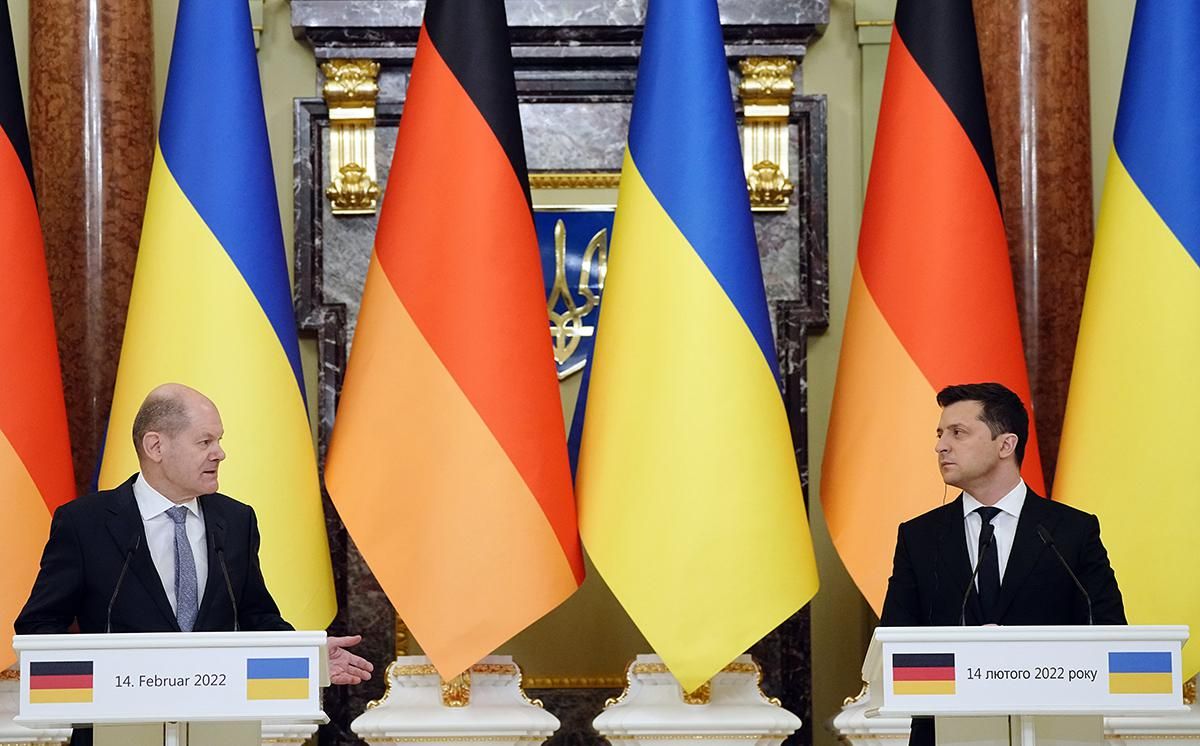What We're Watching: Scholz in Moscow, Trudeau invokes Emergencies Act, a crucial Russian vote
Is there a dog for Olaf Scholz in Moscow? The German chancellor will sit down with Russian President Vladimir Putin in Moscow on Tuesday as fears of a Russian invasion of Ukraine continue to mount. On Monday, Scholz met with Ukrainian President Volodymyr Zelensky in Kyiv, and they both downplayed the possibility of Ukraine joining NATO. Such expansion of the alliance is a red line for Putin, who has massed more than 100,000 troops along Ukraine’s border and demanded assurances from Washington that NATO will stop expanding eastward. Scholz has said Berlin will back strong sanctions against Moscow in the event of an invasion, but Germany is also heavily dependent on Russian gas, a vulnerability that Putin will doubtless look to exploit. We’re watching to see how Putin handles the new German leader. At his first head of state meeting with Scholz’s predecessor, Angela Merkel, Putin famously brought his black lab Konni despite knowing the German Chancellor was afraid of dogs. What awaits Scholz?
A bridge too far in Canada. Prime Minister Justin Trudeau reportedly invoked the Emergencies Act on Monday, giving federal authorities additional powers to deal with ongoing protests by truckers opposed to vaccine mandates. The demonstrations have wreaked havoc in the Canadian capital, Ottawa, and at various border crossings. Late Sunday, police arrested those who blocked the Ambassador Bridge between Windsor, Ontario, and Detroit, Michigan, reopening the critical US-Canada trade route. But troubles remain at other border crossings. On Monday, Mounties in the western province of Alberta arrested 11 people after finding weapons in trailers at a protest near the US frontier. Trudeau says he has no plans to use the military to deal with the crisis, but he’s clearly feeling the frustration of average Canadians, nearly three-quarters of whom now say they want the protesters to go home, according to a new Angus Reid Institute poll. Meanwhile, Canadian demonstrations are having a knock-on effect globally, with copycat protests kicking off in France, the Netherlands, and New Zealand.
A Russian vote on independence for Ukraine’s breakaway provinces. On Tuesday, Russian lawmakers are expected to offer a proposal in Russia’s parliament, the State Duma, that calls on President Vladimir Putin to immediately recognize the independence of the breakaway Ukrainian provinces of Donetsk and Luhansk. Russia has supported their separatist governments with cash, weapons, and other forms of military support since 2014 – though Moscow denies direct involvement. This is an intriguing development because Russian recognition would effectively end peace negotiations over the so-called Minsk Agreement but could also allow Russia to claim a major victory on behalf of ethnic Russians living in that region without starting a war that imposes all kinds of heavy costs on the Kremlin. We’re watching this latest move to see whether Putin will direct members of the ruling party to support it.
